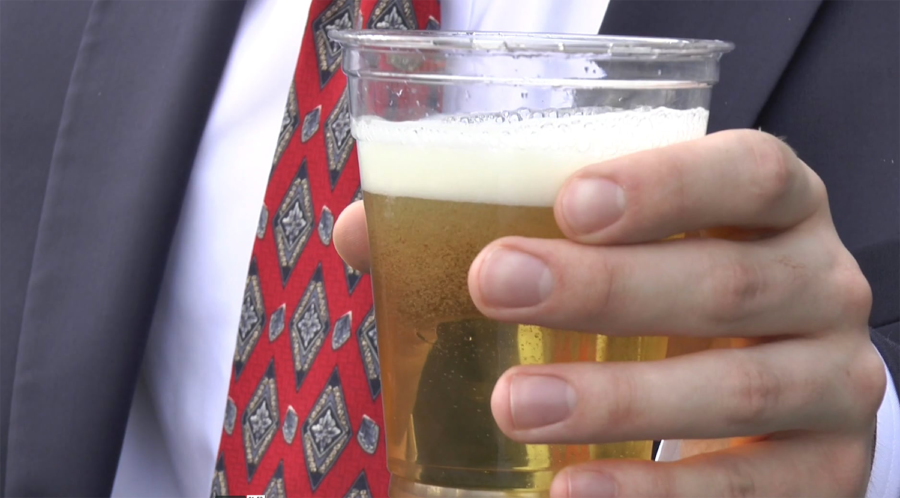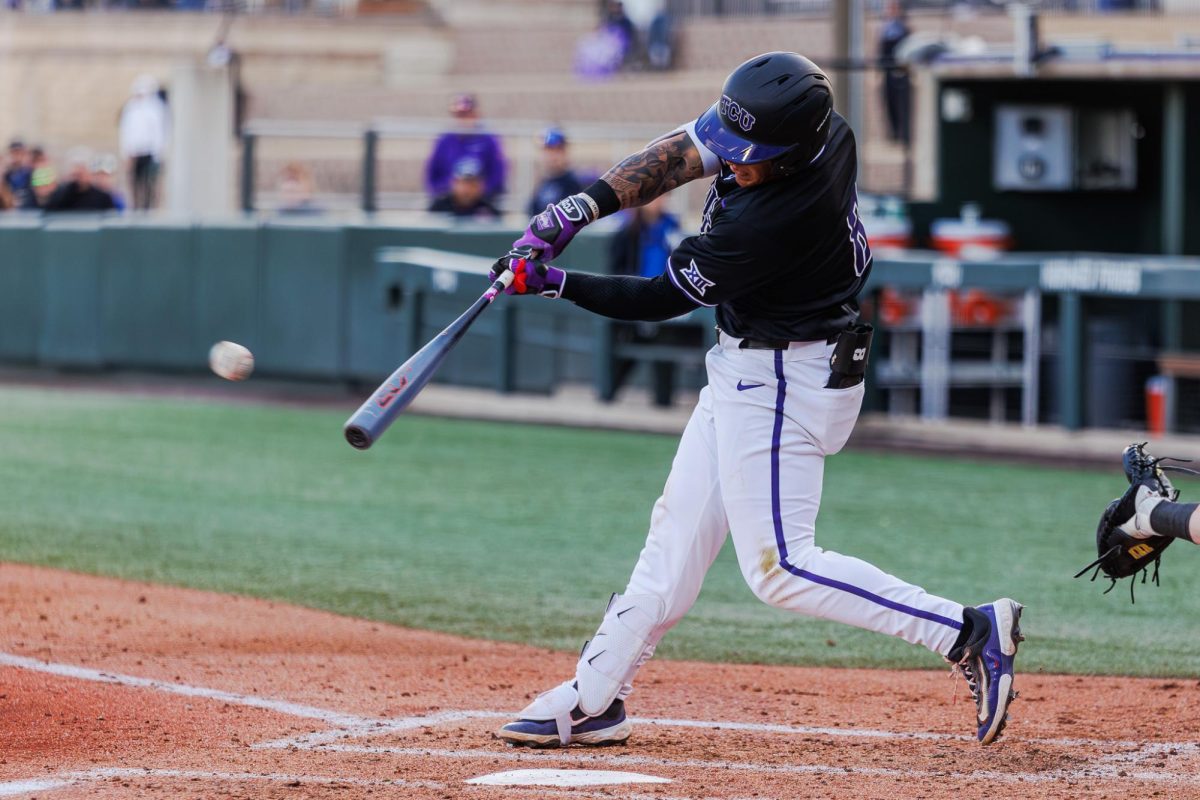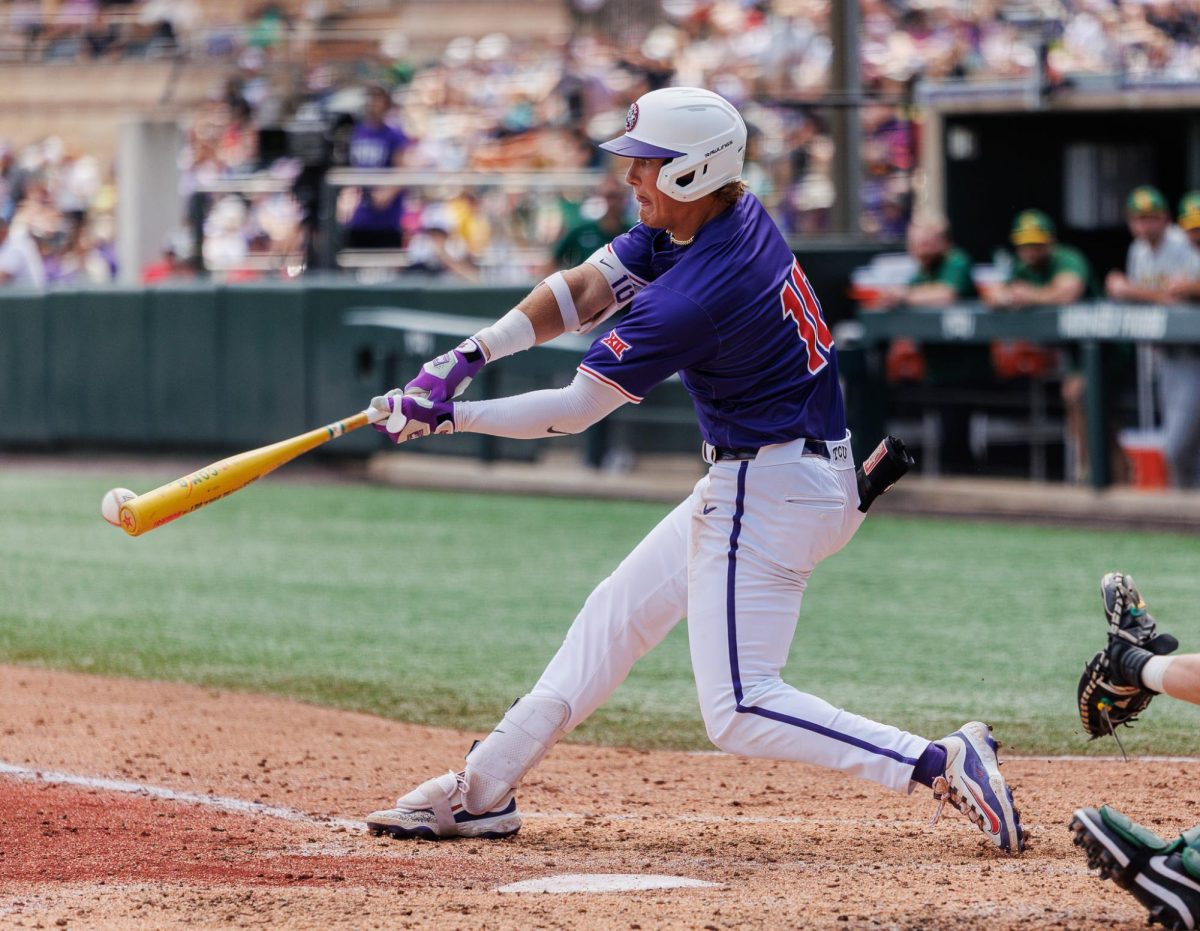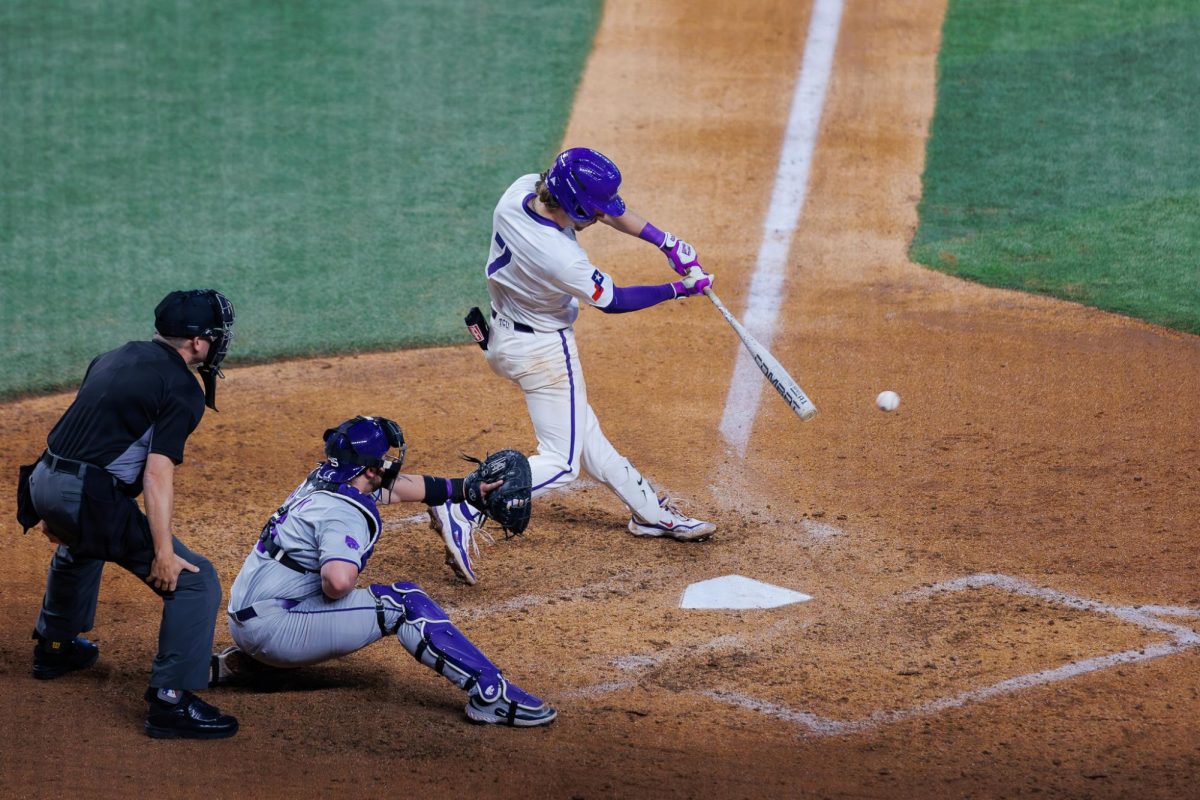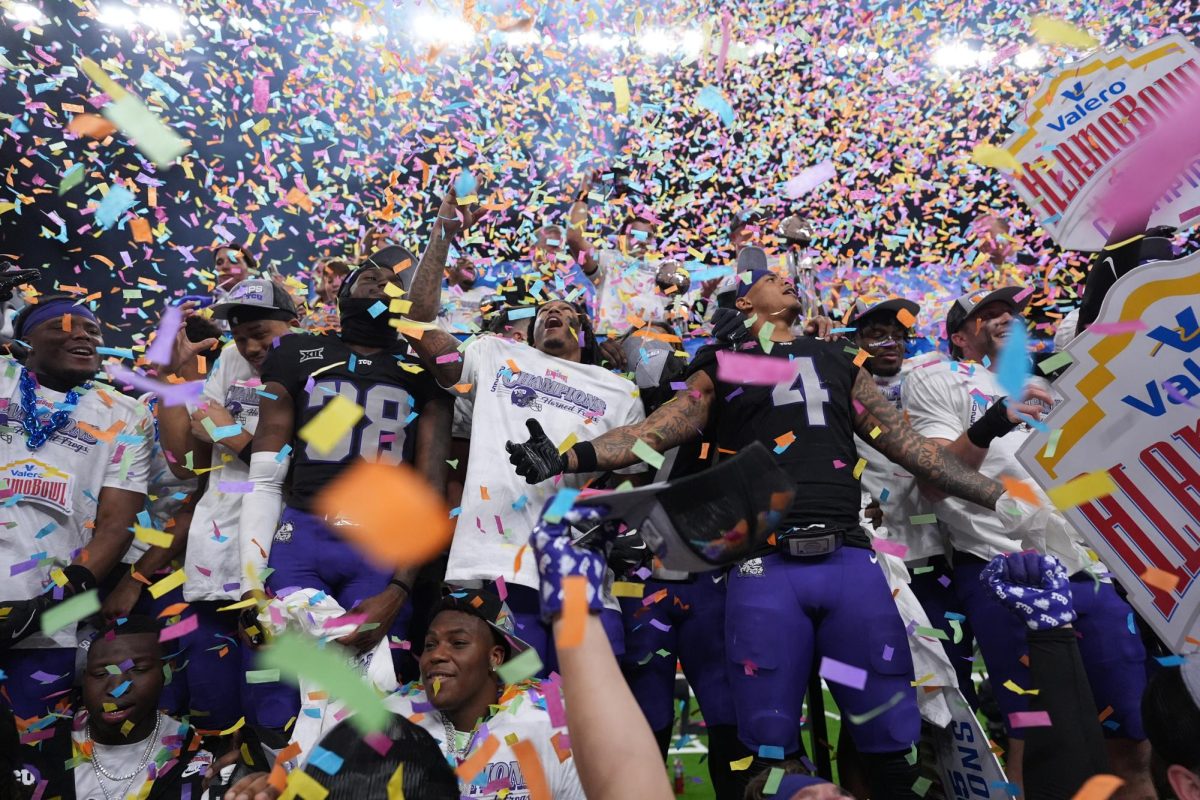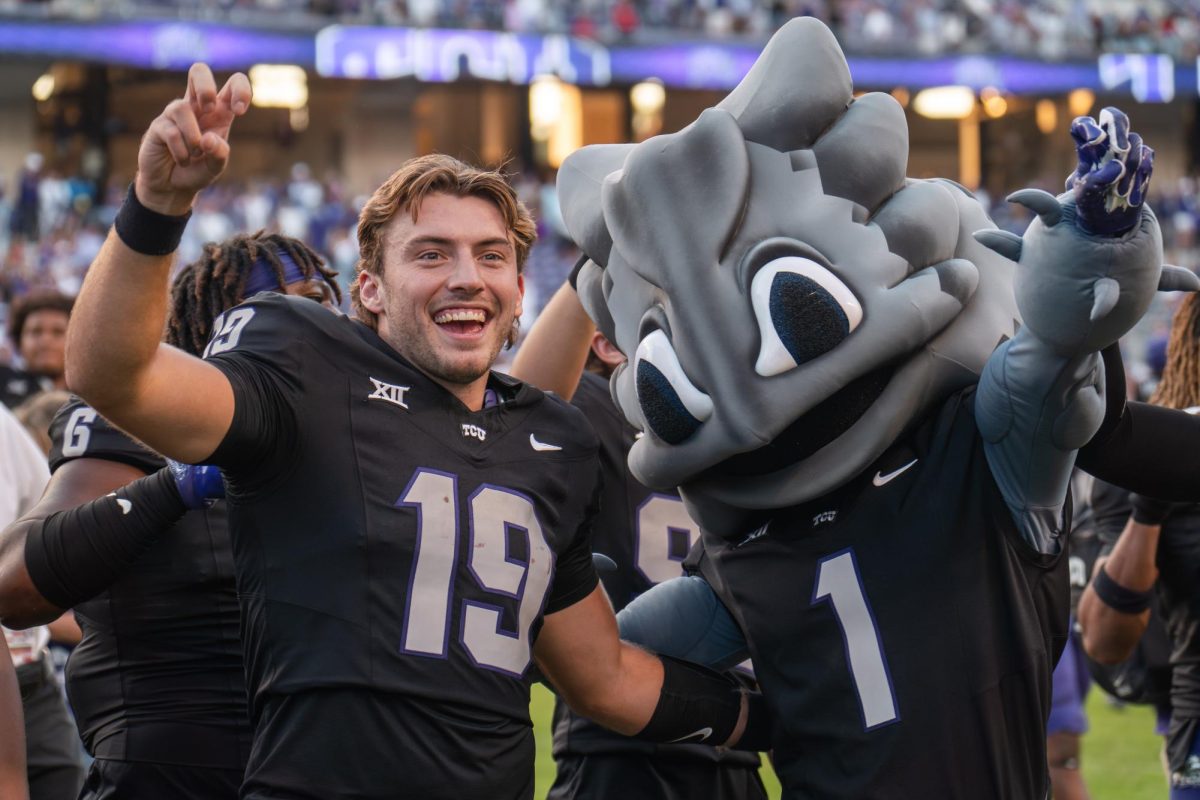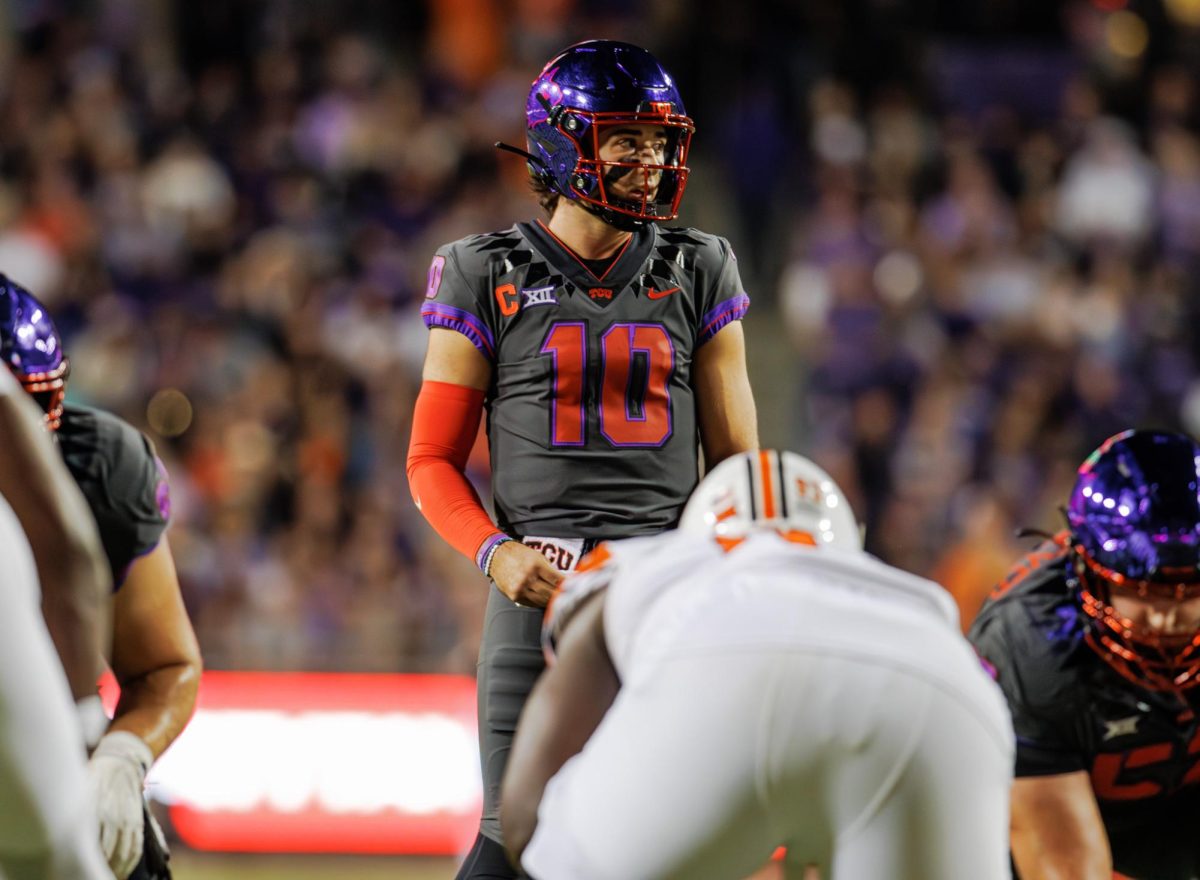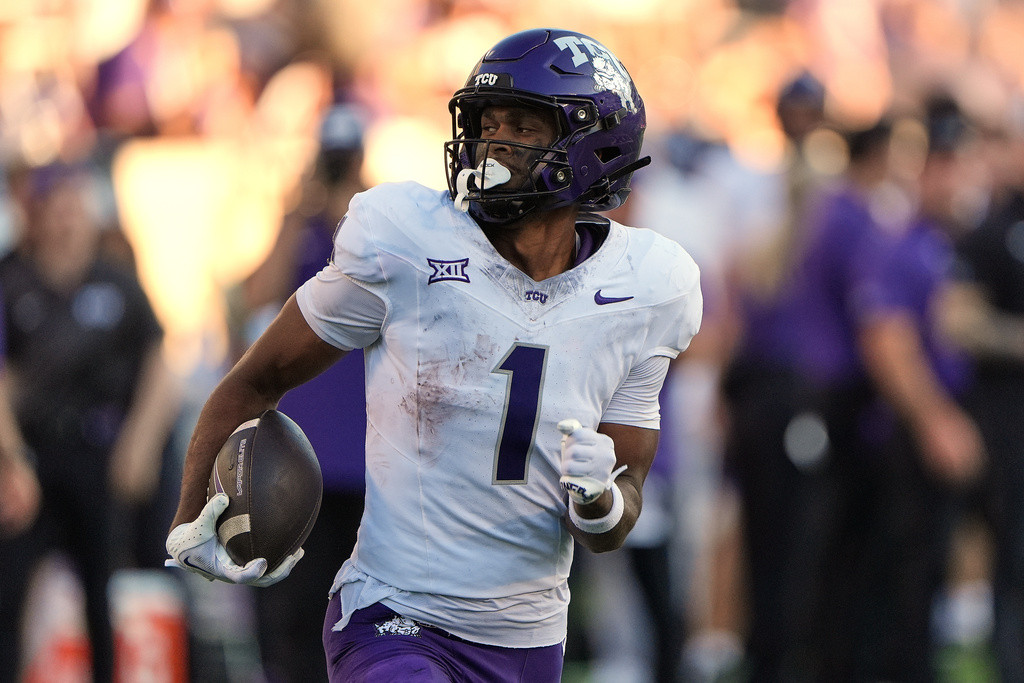Although TCU Chancellor Victor Boschini finalized the decision to sell beer for the first time at the final seven Horned Frog baseball home games, he has some mixed feelings. “I have an ambivalent feeling both ways about it,” Boschini said. “The main pro I see about is that people won’t go in and out and be drinking because that’s where I think people drink too much, especially younger people, in my opinion. This will stop that and we’ll patrol the sale of alcohol.” Another component of the beer sales pilot program is the elimination of in-and-out privileges during the remaining baseball home games whereas in the past fans have been allowed to come in and out of TCU games as much as they please. If fans leave and desire reentry, they will now need a new ticket. This policy will affect students, as well. Each student ID will be scanned upon entry and and re-entry will not be permitted. This part of the policy eases some concerns about the introduction of alcohol to TCU athletics, but Boschini still has his own concerns. “I worry about in general having alcohol available in the stadiums, any stadium, just because there are all these issues with it,” Boschini said. The official announcement came Monday that Lupton Stadium will sell beer for the last seven home games.
Good morning @TCU_Baseball fans!Excited to announce a pilot program for the remaining games this season at Lupton Stadium. Beginning Wednesday night against DBU we will now offer beer for sale at the ballpark. Enjoy responsibly! 🐸⚾️🙌🏼 #GoFrogs
— Jeremiah Donati (@JDonati_TCU) April 30, 2018
“Over the years, a popular request of our season-ticket holders and fans has been the availability of beer for the general public,” TCU Athletic Director Jeremiah Donati wrote in a press release. “For several years now, we’ve had alcohol sales in club and suite areas inside Amon G. Carter Stadium, Schollmaier Arena and Lupton Stadium. We believe this pilot program of beer sales for our remaining home games will enhance the game-day atmosphere and keep up with a national trend.” The decision to go forward with the trial run came after the university conduced internal research while also taking a look at some of its rivals. Big 12 schools like Texas, West Virginia and Kansas State all sell alcohol at their games. “Now, more and more of our competitors are doing it, and so we definitely weren’t the last ones, but definitely on the end of that curve,” Boschini said. “I looked mainly at the Big 12 schools because those are our biggest competitors.” The University of Texas, which began selling beer at its stadium in 2015, reported sales of $3.1 million and profit of $1.3 million during the 2016 football season. Texas also sold sponsorship deals to MillerCoors for domestic beer and Corona for the import category in deals that will net the school another $5 million annually. However, Boschini is skeptical about a smaller school’s ability to generate the same kind of windfall. “I doubt if anyone actually profits even if they say they do unless they’re a school with a similar size to Ohio State’s,” Boschini said. “Especially at TCU, we’ll never, in my opinion, make enough money off that for finances to be the reason to do it. Providing a better fan experience would be a better reason than that.” According to the press release, beer will only be served in clear plastic cups, and no bottles or cans will be served. Service will start one hour before first pitch and conclude at the start of the top of the seventh inning. Some of the beers available on tap are Bud Light, Miller Light, Michelob Ultra, Coors Light and other craft beer options. Many of TCU’s students who are of legal age are excited to see the pilot program begin. “I’m amped,” senior entrepreneurial management and finance major Brooke Arnold said. “I couldn’t be more excited. As a beer girl at heart, I am really excited that I can buy a beer at a baseball game because what more could you want than a beer at a baseball game, some popcorn, and watch the Frogs play?” Another student is excited for the new experience. “I think it’s going to make the games have a more like an MLB-type experience,” senior marketing major Catherine McSweeney said. “We already have a really nice stadium, and it kind of feels like the big leagues, but I think adding the beer and making it more like a major league experience will be cool.” Having a better fan experience is how the Chancellor will decide if the program is a success. “To me,” Boschini said, “it would look like less drunk people because drinking is regulated more. It drives me crazy when I see those kinds of people causing problems at the stadiums, and a more enriched fan experience for all the fans with people not coming in and out the whole time.” If the program is a success, there’s a chance the sale of beer could extend to other sports like football and basketball. “We figured the last few baseball games we could get it going and see if its a good experiment. If it doesn’t work, we won’t do it in the future, if it does we might,” Boschini said. The pilot program will commence this Wednesday when the Horned Frogs face off against Dallas Baptist University at 6:30 p.m.

